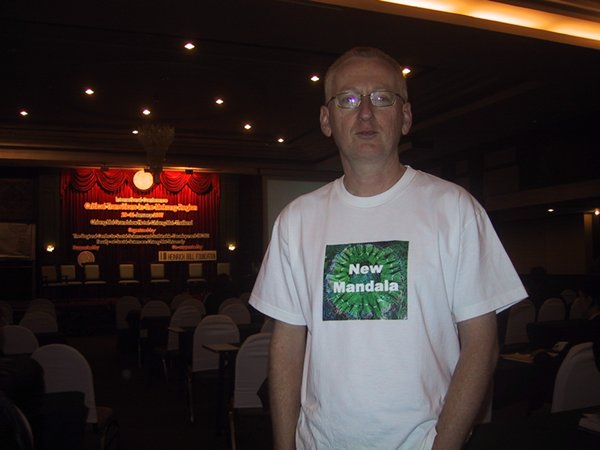For the past three days I have been attending the Critical Transitions in the Mekong Region hosted by Chiang Mai University. Last July I made an early post about this conference, expressing slight scepticism about the ongoing preoccupation with the Mekong region. In some respects I think my concerns were misplaced. The conference has provided a forum for the presentation of an enormous range of research on economy, society, culture and identity in the so-called Mekong region. (I hope to feature some of this research in coming posts.) There can be no doubt that “Mekong” remains an attractive way to package diverse research interests and to encourage research linkages. And there is a pressing need to focus critical attention on the “Mekong region” development initiatives promoted by agencies such as the ADB and the World Bank.
But I still think that, as a framework, “the Mekong” has its limitations. There is sometimes a tendency to revert to a rather simplified narrative in which “Mekong region development” (steered by multinational agencies) stands against the aspirations of “local communities”, threatening their livelihoods through processes of “regional enclosure.” Local communities are seen as responding to this through various strategies of resistance, avoidance, “counter-discourse” and political activism. Revitalisation of trans-border ethnic linkages is often seen as a key part of this response, with Mekong ethnicity set against the marginalising tendances of regional development.
I accept that this framework has a lot to offer and it has certainly generated a great deal of fascinating research. But I suspect the critical transitions in the Mekong region may require some more critical reflection on the tropes and metaphors that we use to understand regional development. In particular I think we need to give much more attention to the ways in which regional development is a process that emerges out of household and community enterprise as much as it is a product of decision making in what one presenter referred to as “corporate bedrooms.” I am sure he meant to say “boardrooms” but the slip is much more fun and does point towards the socially embedded nature of regional development.
 Facebook
Facebook  Twitter
Twitter  Soundcloud
Soundcloud  Youtube
Youtube  Rss
Rss 